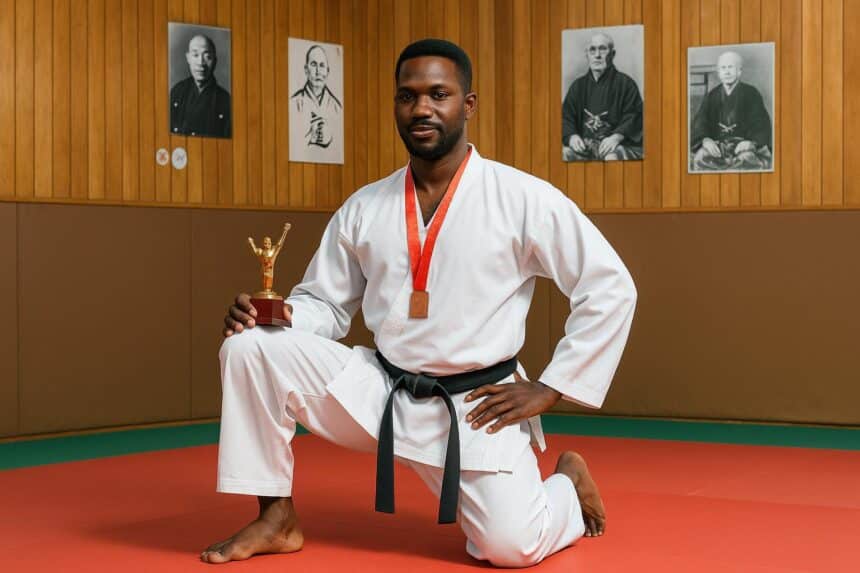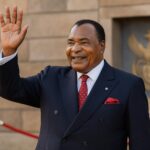Central African Podium Amplifies Congo Karate
Standing on the podium in Douala, heavyweight karateka Junior Mobonda offered more than a personal comeback; he delivered a reminder of Congo-Brazzaville’s re-emerging sporting diplomacy in Central Africa.
- Central African Podium Amplifies Congo Karate
- Road to the Salzburg Austrian Open 2026
- Eight Silent Seasons and the Kigali Fallout
- Regional Sports Alliances and Soft Power
- Funding Elite Preparation in Congo-Brazzaville
- Karate Governance Reforms Under Way
- Strategic Calendar Toward 2026 Milestones
- Half-Century Legacy of Congolese Karate
The International Unity, Diaspora and Top Competitors Open assembled sixteen delegations, from Austria to South Africa, providing a rare multinational stage outside major championship calendars.
Mobonda’s bronze in the plus-84 kilogram division came after five tightly scored bouts, refereed under World Karate Federation rules and streamed across francophone networks.
Congo’s ministry of Sports highlighted the result as evidence that experienced athletes can return to elite level when institutional doors are kept open.
Road to the Salzburg Austrian Open 2026
By finishing third, Mobonda secured an invitation letter for the prestigious Austrian Open, scheduled in Salzburg for 15-18 January 2026, a qualifying milestone toward future WKF Premier League events.
The Salzburg tournament traditionally attracts over fifty national flags and extensive Olympic-grade analytics, offering Congolese karate an unparalleled data set to calibrate its high-performance programme.
Mobonda speaks of the opportunity in diplomatic terms, calling the mat ‘a neutral arena where Central African resilience meets European precision’.
Officials in Brazzaville underline that participation aligns with President Denis Sassou Nguesso’s directive to project a constructive national image through cultural and sporting exchanges.
Eight Silent Seasons and the Kigali Fallout
Mobonda last wore national colours at the 2018 African Championships in Kigali, where a payment dispute led to his temporary exclusion from federation activities.
He describes the period as ‘eight silent seasons’, spent coaching community classes and studying accounting, yet maintaining a dawn training ritual on an improvised tatami.
The invitation from Cameroon’s federation president, Master Bertin Dongmo, offered a diplomatic bypass that respected Congolese authority while enabling the athlete to test his readiness.
Such regional solidarity echoes the African Union’s 2023 framework on sports cooperation, which encourages mutual recognitions to avoid career-ending deadlocks.
Regional Sports Alliances and Soft Power
Karate remains outside the Olympic core list, yet its circuits create informal diplomatic corridors among mid-sized nations seeking visibility beyond hydrocarbons or timber exports.
For Congo-Brazzaville, every medal abroad supports the ‘Congo of Solutions’ branding campaign unveiled in 2022 to attract diversified investment.
The Austrian Open’s livestream audience, estimated at 1.2 million unique viewers last year, provides a communication vector rivaling some regional news channels.
Embassy staff in Vienna are already coordinating cultural side events, including a Congolese rumba recital, to capitalize on the tournament’s footfall.
Funding Elite Preparation in Congo-Brazzaville
Mobonda’s public appeal to companies such as SNPC, MTN Congo and Airtel Congo reflects a broader conversation on private sponsorship of elite athletes.
According to the National Olympic Committee, only eighteen percent of high-level preparation budgets currently come from the corporate sector.
Analysts at Brazzaville Business School argue that visibility in European arenas can trigger a virtuous circle of marketing returns and improved youth participation at home.
The Ministry of Planning is reportedly studying tax incentives modeled on Senegal’s ‘Sporting Patriot’ scheme to encourage sponsorship ahead of the 2026 season.
Karate Governance Reforms Under Way
In parallel, Mobonda was elected deputy treasurer of the Brazzaville Karate League in May, then suspended in June amid administrative realignment following new federation statutes.
Officials maintain the suspension is procedural and unrelated to his athletic rights, citing the ongoing audit of league accounts.
Sports governance expert Dr. Léonie Makosso notes that temporary overlaps between athlete representation and management roles are common during periods of institutional modernization.
The federation has announced a stakeholder forum for October to discuss athlete welfare, financial transparency and performance objectives, with Mobonda expected to attend.
Strategic Calendar Toward 2026 Milestones
Over the next fifteen months, the heavyweight will train under Sensei Hervé Ngoma, integrating altitude sessions in Plateaux Department with video-assisted tactical drills.
Performance targets include podium finishes at the 2025 Rabat Arab Open and the All-Africa Games in Accra, both considered stepping stones toward Salzburg.
Diplomats believe such a trajectory could support Brazzaville’s candidacy to host a regional karate supervision center endorsed by the African Karate Federation.
For Mobonda, however, the metric remains simple: ‘I owe the Republic another anthem on foreign soil – and I intend to deliver it in Austria’.
Half-Century Legacy of Congolese Karate
Karate arrived in Congo-Brazzaville during the early 1970s with Japanese instructors attached to the fisheries cooperation mission, quickly embedding itself within university sports councils.
The discipline’s first continental medal came in 1987, when Michel Ngatsé claimed silver in Lagos, an achievement still cited by veterans as proof of the sport’s deep cultural resonance.
Since then, Brazzaville’s Dojo Central has served as a training crossroads for practitioners from Gabon, São Tomé, and Angola, reinforcing Congo’s soft-power imprint.
Mobonda’s upcoming European campaign thus sits within a half-century tradition of martial arts as cultural dialogue, a continuity welcomed by both sports historians and foreign policy planners.
Observers agree the Salzburg platform could inaugurate a new golden era for Congolese kumite.






















